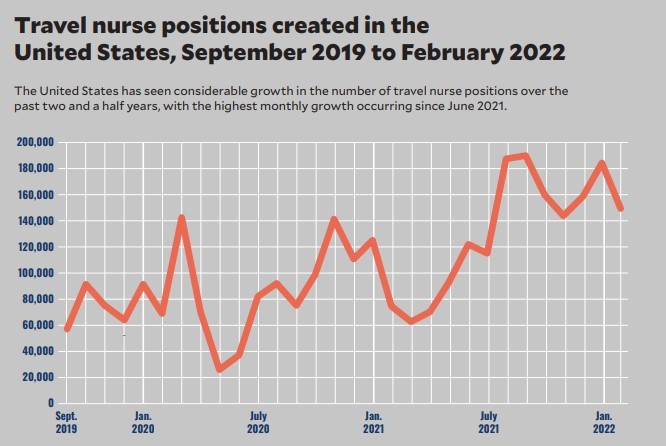According to the Bureau of Labor Statistics, roughly 1 out of 10 workers in the United States are self-employed. This number includes both small and large business owners as well as freelancers.
Self-employment has a lot of perks, including the ability to decide when, where, and how you work. The downside is that when you work for yourself, your job doesn’t include any workplace benefits, such as paid leave, retirement plans, and especially health insurance.
Finding health insurance when you’re self-employed isn’t always easy. Unlike traditional employees, self-employed workers don’t have an employer to help cover their monthly premiums or negotiate for lower deductibles on their behalf.
Why Do We Recommend Private Health Insurance For Self-Employed Individuals?
Simply put, private insurance coverage is your best option because:
It offers nationwide PPO coverage no matter where your job takes you
Individual and family plans are available
The coverage can be tailored to your specific needs and budget
Private Insurances aren’t income based
With Simple Health Quotes, you can save up to 40% on your policy as compared to Marketplace or other forms of coverage.
We’ll guide you through the policy selection process from start to finish. After you choose the right plan, our health insurance experts remain available to you for the duration of your policy.
(SHQ also offers a $100.00 referral bonus for every friend or colleague that signs up through you!)
Table of Contents:
What are the Options for Self-Employed Health Insurance?
Consolidated Omnibus Budget Reconciliation Act – COBRA
ACA Marketplace Individual and Family Health Insurance Plans
Health Maintenance Organization – HMO Plans
Exclusive Provider Organization – EPO Plans
Preferred Provider Organization – PPO Plans
Private Health Insurance Plans
MultiPlan or Discount Medical Plan Organization – DMPO
Christian Healthcare Ministries (CHM) or Faith-Based Healthcare
Supplemental Insurance for Vision & Dental

What are the Options for Self-Employed Health Insurance?
Similar to contract employees, the self-employed have several options:
- Consolidated Omnibus Budget Reconciliation Act (COBRA) – provides coverage for up to 18 months after job loss
- Affordable Care Act (ACA) Marketplace individual or family health insurance coverage
- Private Health Insurance
Medicaid and CHIP are not included in this list as most make more than the maximum income requirements.
Consolidated Omnibus Budget Reconciliation Act – COBRA
COBRA gives self-employed individuals the right to choose to continue health benefits from their group health plan for up to 18 months after voluntary or involuntary job loss. Qualified individuals may be required to pay the entire premium for coverage up to 102% of the plan’s cost.
Using COBRA for health insurance options between agency plans can become quite expensive in the long run.
ACA Marketplace Individual and Family Health Insurance Plans
ACA-compliant health insurance plans are another option for self-employed. Enrollment for this coverage is limited to November 1st to December 15th unless you experience what is called a “qualifying life event.”
According to HealthInsurance.org, qualifying life events include:
- Involuntary loss of coverage
- Individual plan renewing outside of the regular open enrollment
- Becoming a dependent or gaining a dependent?
- Marriage
- Divorce
- Becoming a United States citizen or lawfully present resident
- A permanent move
- An error or problem with enrollment
- Employer-sponsored plan becomes unaffordable or stops providing minimum value
- An income increase that moves you out of the coverage gap
- Gaining access to a QSEHRA or Individual Coverage HRA
- An income or circumstance change that makes you newly eligible (or ineligible) for subsidies or CSR
- Various exceptional circumstances
Choosing ACA health insurance allows more control over benefits, premiums, and out-of-pocket costs. You also cannot be denied coverage for pre-existing conditions.
Types of ACA Health Insurance Plans include:
- Health Maintenance Organization (HMO) plan for in-network physicians and referrals
- Exclusive Provider Organization (EPO) plans contract with doctors and hospitals to provide care to the health plan’s member
- Point of Service (POS) plan which is a hybrid of HMO & PPO coverage
- Preferred Provider Organization (PPO) plan that provides nationwide coverage

Health Maintenance Organization – HMO Plans
This insurance plan allows you to pick your primary care physician within your HMO network. All referrals for specialist visits and medical needs must be made within your HMO network or will be subject to additional costs. The only exception to this is if you need emergency healthcare.
Exclusive Provider Organization – EPO Plans
An EPO is a type of health plan that falls somewhere between a Health Maintenance Organization (HMO) and a Preferred Provider Organization (PPO) in terms of cost and flexibility. With an EPO, self-employed individuals have only in-network coverage (except for
emergencies), but they do not need to select a primary care physician (PCP) or get referrals to see specialists.
EPO health insurance members are covered for emergency care no matter where they are – in or out of network.
Point of Service – POS Plans
With a POS plan, you can still choose their PCP, but more out-of-network healthcare providers are accessible. Their network is essentially larger than that of an HMO plan but smaller than a PPO. A portion of medical expenses outside the PPO network is covered.
POS plans can be as much as 50% cheaper but tend to be confusing to navigate. They can also take as long as 3-6 months for reimbursement after a health care visit. POS plans offer location flexibility but some things to consider are high annual deductibles and complicated benefits.
Preferred Provider Organization – PPO Plans
This type of health insurance gives you an entire network of preferred healthcare providers. PPO plans are ideal as health insurance for the self-employed due to their flexibility and overall coverage.
With PPO insurance, you have the advantage of:
- Seeing a physician or healthcare provider of your choosing
- No need to choose a primary care physician(PCP)
- No referrals needed for specialist visits
- Greater flexibility than all other coverage options
With a PPO plan, you are able to travel seamlessly between contracts and locations without worrying about coverage.
Click here for assistance with finding your PPO insurance plan.
Private Health Insurance Plans
Short-Term Health Insurance
These insurance plans often have less comprehensive benefits but are an option for those between contracts. This type of insurance plan also has drawbacks regarding pre-existing conditions.
They are mostly EPO and PPO plans that are underwritten at the time of claim. This could pose a danger to those with medical histories and result in paying large out-of-pocket expenses.
Short-term health insurance is better than no health insurance coverage, but as the name implies, it is only a temporary option.
Medically Underwritten Plans
These health insurance plans involve researching the medical history of an applicant in order to identify risk factors and price coverage accordingly. Policies are PPO only.
The factors typically examined include:
- Current health & physical condition
- Personal health history
- Occupational hazards
Medically underwritten plans are a great option for self-employed individuals that are in good health. The healthier you are, the better the rates. Some policies can even be guaranteed renewable until the age of 65 no matter the claims, and are the best private PPO plans on the market.
MultiPlan or Discount Medical Plan Organization – DMPO
The MultiPlan Network is a nationwide complementary PPO network. This type of health insurance plan gives you access to a choice of providers that have agreed to offer a discount for services.
These plans are very limited and do not have a cap on out-of-pocket costs. They also do not accept pre-existing conditions. The unknown costs and limited services could be problematic.
Christian Healthcare Ministries (CHM) or Faith-Based Healthcare
Faith-based healthcare is offered through 501(c)(3) nonprofit charities and serves as an alternative to health insurance. Members contribute a fixed dollar amount to the organization. When a member of the community falls ill, they submit a request for the amount required to cover the health care bill.
These plans are not recommended as they typically only cover smaller claims and resources are limited to whatever is in the community pot.
Supplemental Insurance for Vision & Dental
Another consideration when choosing health insurance is the availability of vision and dental coverage.
For example, ACA insurance policies do not cover regular vision checks, glasses, or dental cleanings. This means that you’ll have to purchase supplemental insurance for these coverages.
You can purchase supplemental dental and vision insurance through brokers like Simple Health Quotes.
Fines for Not Having Health Insurance
Federal tax penalties have been repealed, but you can still face fines in some states for not having compliant health insurance.
These are things to consider for self-employed individuals based or traveling in the following states:
- California
- New Jersey
- Rhode Island
- Washington D.C.
- Massachusetts
Fines for Not Having Health Insurance
Federal tax penalties have been repealed, but you can still face fines in some states for not having compliant health insurance.
These are things to consider for self-employed individuals based or traveling in the following states:
- California
- New Jersey
- Rhode Island
- Washington D.C.
- Massachusetts
Final Thoughts On Self-Employed Health Insurance
Having comprehensive nationwide coverage is the best option for anyone who is self-employed. Everyone’s health care needs are unique, and talking to an expert is crucial while selecting the right coverage for you and your family.
Simple Health Quotes has an experienced customer support team specializing in self-employed insurance plans.
Having comprehensive nationwide coverage is the best option for anyone who is self-employed. Everyone’s health care needs are unique, and talking to an expert is crucial while selecting the right coverage for you and your family.
Simple Health Quotes has an experienced customer support team specializing in self-employed insurance plans.


This information is very helpful to me! Thank you for that, it made it so clear for me.